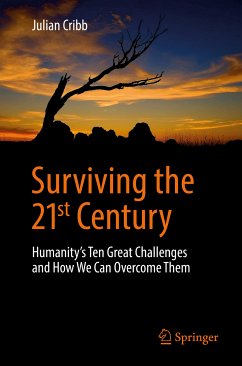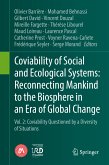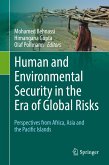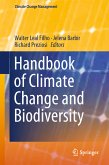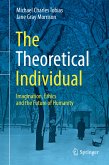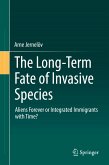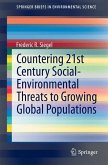The author examines ten intersecting areas of activity (mass extinction, resource depletion, WMD, climate change, universal toxicity, food crises, population and urban expansion, pandemic disease, dangerous new technologies and self-delusion) which pose manifest risks to civilization and, potentially, to our species' long-term future. This isn't a bookjust about problems. It is also about solutions. Every chapter concludes with clear conclusions and consensus advice on what needs to be done at global level -but it also empowers individuals with what they can do for themselves to make a difference. Unlike other books, it offers integrated solutions across the areas of greatest risk. It explains why Homo sapiens is no longer an appropriate name for our species, and what should be done about it.
Dieser Download kann aus rechtlichen Gründen nur mit Rechnungsadresse in A, B, BG, CY, CZ, D, DK, EW, E, FIN, F, GR, HR, H, IRL, I, LT, L, LR, M, NL, PL, P, R, S, SLO, SK ausgeliefert werden.
"His book Surviving the 21st Century: Humanity's Ten Great Challenges and How We Can Overcome Them poses the ten existential challenges facing Homo sapiens, and answers each one. It is a book of solutions, severally and collectively." (Climate Plus, climateplus.info, December, 2016)
"It comprehensively addresses all the main threats to us and to our planet. ... We can demonstrate wisdom by getting hold of a copy of Surviving the 21 Century and applying some of the recommendations to our own lives. We can recommend the book to others. We can alert our leaders to the book and its contents. We owe this to ourselves and to our planet." (Paul Holper, Scientell, scientell.com.au, November, 2016)
"Spells out the ten greatest challenges ahead and suggests strategies to meet them, all based on science .... Those challenges include ecological collapse, climate change, war, chemicals in the environment, food, disease and delusional thinking, among others. The potential solutions proposed by the author include putting women in charge of world affairs, and for men to start thinking more like 'wise women'." (Scimex, scimex.org, November 3, 2016)
"What a refreshing a dose of realism! An antidote to so much media fog, hype and bad science. An important read for anyone who is seriously concerned about how the human race is to go forward and how to help our grandchildren survive. Worth every penny. (Will Goodall, Amazon.com, October 12, 2016)
"The book has been unanimously praised by a cast of reviewers ... . The author explores each of these threats and identifies ways we can positively approach each of them. But he says the greatest challenge lies not in the physical threats we face but in our own minds. He argues that our belief in non-material things like money, politics, religion and the human narrative often diverts and undermines our efforts to work together for survival." (Canberra Alliance for Participatory Democracy, canberra-alliance.org.au, October 5, 2016)

